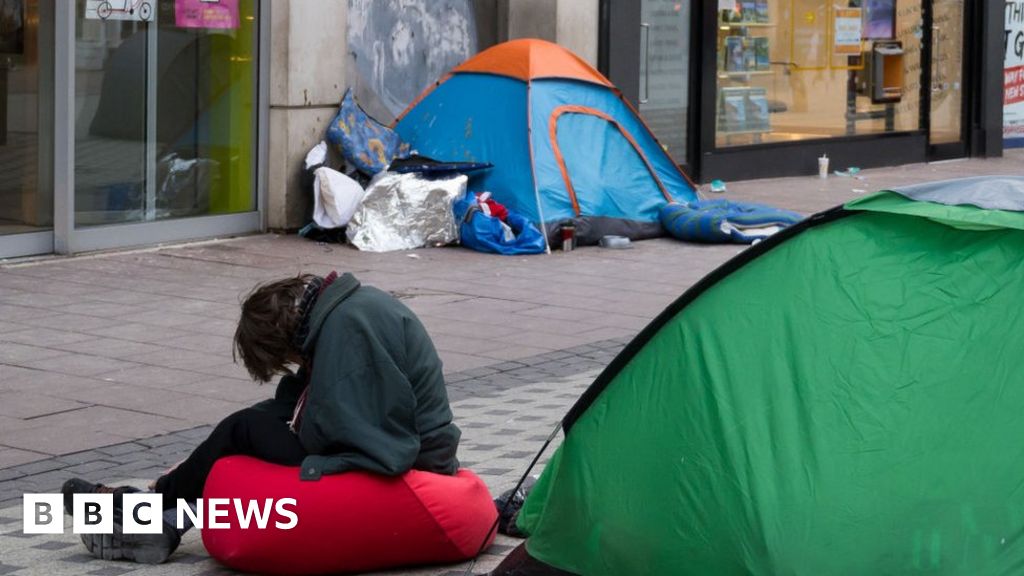image courtesy of Getty Images Stephen’s life began to go south after his 16-year-old wife left him. The father of four acknowledges that he was unable to cope. There were emotional pain twists, followed by pecuniary ones. After falling behind on rent and expenses, the 49-year-old claims he was forcibly taken from his house. He was living alone in a two-man tent on the Trans Pennine Trail and spending time in a bus station to stay warm when he struck rock bottom. For food, he turned to churches, charities, and good Samaritans. He’s now struggling to pull himself out of the abyss. During the pandemic, he was able to find a more suitable place to reside and has lately applied for a permanent council lease. He had one major impediment to living independently in sufficient housing: he lacked a bank account. He didn’t have any paperwork or identification that would allow him to open an account. A nexus between the council and HSBC aided him. People like Stephen have been able to open a basic bank account – which does not enable credit – without a photo ID or proof of address for the past 18 months at the High Street bank. Instead, a caseworker from a charity or the council validates their identity. The scheme has resulted in the creation of 1,144 accounts. According to Maxine Pritchard, head of financial inclusion at HSBC UK, the pandemic has exacerbated the problem of homelessness. image courtesy of Getty Images “It’s incredibly difficult to collect benefits, rent housing, or get earnings without a bank account, which means that homeless people can become imprisoned in their existing condition.” “That’s just not right,” Ms Pritchard argues. Stephen claims that it has a positive impact on his life. He expresses his gratitude by saying, “It means so much to me.” “It aids in the development of life skills that I’ve lost over time.” He believes that the ability to set up a direct debit is critical for staying on top of payments. He can now manage the necessities, such as grocery shopping, without relying on the charity of others. He claims that this is something that initially made him nervous, but that it is another step toward a better life. The program isn’t the only one that helps homeless people open bank accounts. The BBC reported last month on a modest trial initiative operated by Proxy Address, a social company, in collaboration with Lewisham Council. It is providing a virtual address to 20 homeless persons who can use it to ask for help. If all goes according to plan, the scheme may be extended. ‘Having an address earned me job when I didn’t have a place to live.’ ‘We want another homeless hostel – and we can make it work,’ says one of the only really free bank accounts. The Big Issue Group has helped hundreds of others, partly to take contactless payments when selling the magazine. Louise Haywood-image Schiefer’s is licensed under a Creative Commons Attribution-Noncommercial-No De Many have been handed Zettle card readers to accept contactless payments from customers on the street, who are increasingly carrying simply a card in their wallet rather than money. Dave is one of the people that used the card reader and benefited from a new bank account. “It definitely increased my sales,” says the 59-year-old, who sells the Big Issue in London. And, as a result of the pandemic, card sales skyrocketed. People shop less frequently, shop online, or are simply frightened to get out for Covid reasons. You get a lot of people who stop participating and shrink into themselves.” According to Beth Thomas of The Big Issue, the pandemic has intensified its effort of guaranteeing that vendors can accept both cards and cash. Approximately 30% of Big Issue vendors are now cashless. As more of them have access to money in a bank account, they may be able to take one of the many steps necessary to a brighter future. HomelessnessMoneyMoneyMoneyMoneyMoneyMoneyMoney/n
Read MoreFrom living in a tent to financial independence
2021-07-09T21:03:36-04:00July 9th, 2021|





